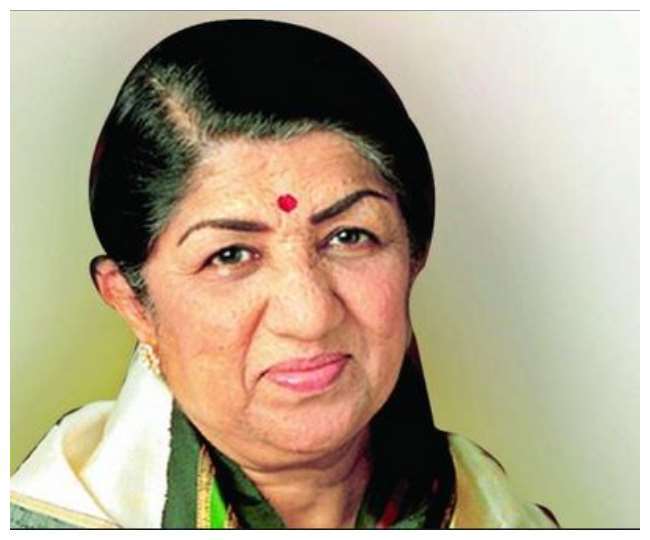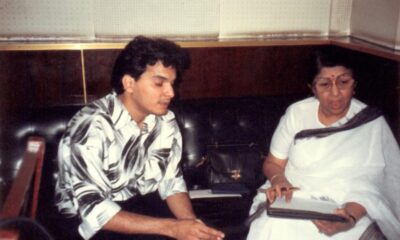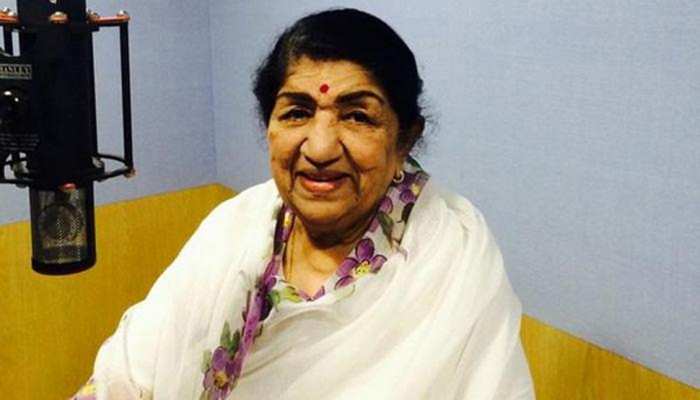Exclusive Premium Content
In An Interview Conducted in 1999 Lata Mangeshkar talks about awards, the contemporary music scene and her sister Asha Bhosle.

What do awards mean to you at this stage of your life and career when you’ve seen every recognition possible?
I am happy with what I have got. I’m proud to be an Indian and whatever award the government confers on me is an honour. I firmly believe that one only gets what one deserves. You know, my father was a very good astrologer. Whatever he predicted would come true. Just before his death he went to our ancestral village in Goa and told everyone there that he had only a short time left in this world and that his daughter, meaning me, would become very famous. Apparently, he also said that no one in the family could foresee the kind of fame I would attain. I was told about this only recently. So, you see, everything was destined.
What do awards mean to you?
They’re evidence of my contribution to music. I am thankful to all those who are responsible for whatever I am today.
You had stopped accepting popular awards since the mid-Sixties, hadn’t you?
Yes, The problem is, I have won too many awards, so many that there’s no room for them in my house. You know how small my house is. I’ve stored all the trophies at my studio in Kolhapur. There are about 250 trophies and 150 gold discs. My sister Usha says she’s tired of counting them (laughs). But do you know what I consider a real honour? The doctorates that the universities confer on me, like the ones I received from New York University and Pune University. I got one from Kolhapur University too.
Do you feel more people are now appreciating songs with a classical base?
My classical renditions with my brother were always received warmly at concerts,
My brother and I devoted at least fifteen minutes at every concert to classical singing. For me that was the high point of each concert. My concert at the Royal Albert Hall, London, in 1974 was most memorable for me. It was my first concert abroad. I hadn’t had the time for it earlier. I used to be too busy with recordings. Besides, to be honest, I wasn’t too keen on performing abroad. I had heard that my colleagues from the film industry used to sing in cinema halls and other makeshift auditoria abroad. So when I was invited to sing abroad for the first time, the only demand I made was for a decent venue. And I got the Royal Albert Hall!
How did you feel celebrating your 69th birthday on stage in Chicago?
I had been informed beforehand that I’d have to cut a cake on stage. But I forgot all about it. Suddenly, when my birthday was announced at midnight, all the musicians and members of the audience jointly sang ?Happy Birthday? and people clapped and wished me a long life. I felt terribly self-conscious and nervous. Public adulation always unnerves me. A Sardar in the audience shouted, ?Tussi kudi Punjab di ho!? I said I’m from Punjab, Gujarat and the whole of India and Pakistan.
Looking back, what pleases you more: adulation or a manifestation of your phenomenal success?
Let me tell you what pleases me the most. My sister Asha’s success. I am happy to see her so successful, after so many years of singing. I started working in my early teens. She too began singing at a very early age. She has had to undergo tremendous hardship. Of course, our whole family has faced hard times, but Asha suffered more. She got married very early and had a rough time. It is remarkable the way she has revived and rediscovered herself. It is no small achievement. It makes me very happy.
Any regrets?
None at all. These days I am only troubled by my health. In the last ten years it has deteriorated. I wish my health hadn’t let me down. My spirit is young, and I could have done a lot more good work. Who knows, I might have composed music for films. But now I don’t even want to think about such things. I only want peace of mind. I believe whatever happens, happens for the best. I?ve got more than my share of happiness. No human being gets everything in life. At a certain stage in life, I might have regretted what I didn’t get, but today, I?m beyond all that. I have no regrets whatsoever. I never had any complaints against God. Now I don’t have any complaints against human beings.
What do you feel is the future of film music?
The kind of songs one hears these days isn?t very encouraging. But then, change is
inevitable. Look around us. The environment, food habits, lifestyle, everything has changed. And it’s inevitable that music should also change. So many great composers have come and gone. The stalwarts who are still around have no place in today’s scheme of things. What goes up must come down. It is the law of nature.
Who among the present lot of composers do you think is capable of carrying film music forward?
That’s a tough question. Considering the kind of films that are being made these days, there’s too much pressure on the composers to deliver. It’s not that producers didn’t dictate terms to composers earlier. They did, but they had great faith in their music directors. There would be discussions to enhance creativity. Some of the composers of today are good too. But today they are subservient to the needs of the situation. To song picturisation. Sometimes bad songs become hits because of good picturisation. It is no longer possible to evaluate the merits of an individual song. Trends change overnight too. The youth of today prefer westernised music. And the composers are influenced by this reality.
Do you miss working with composers who were creatively in tune with you, like Madan Mohan, Sachin Dev Burman and Roshan?
Of course I do. But such tuning isn’t possible in today’s situation, and with today’s composers. I’m so much older and more experienced than all of them. However, I must admit that even today there are music directors who think, and who are creative, though very few. I have stopped worrying about what happens to the songs I sing. I just sing and get away, don’t follow their fate like I used to do earlier. Whenever a well-composed, well-rendered song failed, I would get very upset. But now I have become more professional (laughs). I used to be so involved with my
songs that at times the challenge posed by an individual song could make me tense. Some composers would be very demanding.
Like…?
(Promptly) Sajjad Husain. Sajjad Saab?s songs would often make me very apprehensive. I’d wonder if I’d be able to sing them the way he wanted me to. There were other composers whose compositions I didn’t fear singing at all because of my rapport with them. Like Madan (Mohan) Bhaiyya. Not that Sajjad Saab took me totask, but he would compose such complex numbers and would be so particular about the way they were rendered, that I would become very conscious. His knowledge of classical music was awesome. I remember, once he told a singer to lower the gandhar. Perplexed, the singer wanted to know what gandhar was. Sajjad Saab was livid. He was a very good human being, but would brook no imperfection.
Who were the other composers who challenged your talent?
Salil Chaudhary. I shared a great rapport with him. He knew which of his creations suited me. I was never scared of singing his tunes. Instead, I would be very keen to sing his songs. I love his music. I haven’t met a composer quite like him. Look at the tunes he thought up! And the sources of his composition! He used to write fluently in Bengali. His poems in Bengali were superb. You know, he used to write his own lyrics for some of the Bengali songs he composed for me. His grasp of the North-Eastern folk music was tremendous. Being a Communist he was an agnostic. So we never agreed on his views on God. Lekin woh kamaal ke music director the.
Which other composer would you place in this kamaal ki category?
(Promptly) Madan Mohan, of course. He had a unique style. And Shankar-Jaikishan.
Jaikishan was very talented. Very creative. Even Shankarji’s songs were a treat. They did borrow from the West whenever they felt like it. But it was Salilda who was deeply influenced by Western music. He used to listen to Western symphonies and incorporate them in his compositions. And he could tell which symphony had been incorporated into which song. What about R.D. Burman?
RD was very talented too. Like his father, he had his own style.
O.P. Nayyar once said that RD gave his best songs to you and the rest to Asha Bhosle. Do you agree with that?
(Laughs loudly) I wouldn’t know about that. He must have had his reasons. RD used to interact a lot with me. He used to call me Didi, and loved me like a sister. He used to pour his heart out to me. He did compose in a special style for me. He knew instinctively which song suited Asha and which suited me. Come to think of it, all the composers must have known which song suited which singer. I loved the songs Laxmikant-Pyarelal composed for me too. They were also special. For about 10-12 years they composed some really great numbers.



